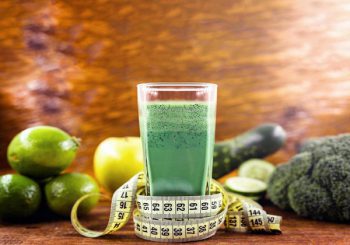By Ty Bollinger
Guest Writer for Wake Up World
Have you ever embarked on a so-called cleansing program or detox for weight loss, where the main goal was merely to shed the pounds as fast as possible? What was the result? Was it long-lasting?
Detoxing solely for the weight-loss benefits can be counterproductive to your weight-loss goals in the long run. Not only that, it can also be dangerous for your health. This is because the relationship between fat cells and detoxification is a very complicated one where many individual factors come into play.
[pro_ad_display_adzone id=”110028″]
Let’s explore the role that fat plays in the body, why your body might be holding on to toxic substances, and how the right kind of detoxification can help you achieve a healthy weight for your body.
Why Do We Even Need Fat Cells?
There is still a lot that even the most informed health professionals don’t know yet about the connection between health and weight. While major studies have made the correlation between obesity (as determined by a person’s Body Mass Index or BMI) and disease risk, that doesn’t mean that a person’s weight, whatever it may be, is the number one cause of disease. There are simply too many factors at play within a personal biology and biochemistry to pinpoint one particular thing as the cause of health or disease.
“Fat is a tissue in your body,” says Dr. Jillian Murphy, a doctor of naturopathic medicine in Ontario, Canada, who works with women on their relationship to food and body image. This statement, as matter-of-fact as it may be, also packs a huge punch.
Like muscle, stomach tissue, and brain tissue,fat is made up of cells that are there to perform specific tasks in the body – and they do so very well when they are healthy and in the right proportion for you. Just a few of the important jobs that fat cells have include insulating the body from temperature extremes and injury, protecting vital organs, and storing energy.
While it was long believed that fat cells were simply “storage units” that can also protect and insulate (kind of like a big jacket does in winter), new research is finding that fat cells may actually have an intricate and interactive relationship to the immune system.
A 2013 study conducted by Weill Cornell Medical College in Houston, Texas, found that overburdened fat cells can put out “false distress signals” which the immune system then translates as these cells being under attack. This immune response, sensing infection, will trigger inflammatory responses that can, in turn, lay the foundation for disease.
On the other hand, certain imbalances in the body, such as gut bacteria imbalance, may “turn on” genetic tendencies towards obesity at the neurological level, thus continuing the cycle of inflammation in that way as well.
Fat Cells are Storehouses for Toxins
While fat cells may play an active role in immune system regulation and carry healthy metabolic substances, they can also act as “storehouses” for toxins. These toxins can come from the environment and in the form of xenoestrogens (aggressive estrogen mimics caused by certain chemicals that can lead to reproductive cancer). They can also come from natural hormones, endotoxins from internal bacteria and external molds, and other chemical and hormonal “debris.”
These stored toxins damage your health through a multitude of means. If your detoxification pathways are clogged or sluggish, then they will not be able to be excreted in the proper amounts. Likewise, if you have more places for them to be stored (i.e. more fat cells), then this will cause a higher toxic load as well.
In this day and age, everyone carries the burden of a potentially higher toxic load – not just those whose work or lifestyle may have them encounter pollutants and not just those who may be overweight.
Toxic build-up in the body can occur from:
- Commercial food products, such as non-organic produce or commercial meats and dairy
- Chemicals found in household products and sundry items
- Air and water pollution
- Work-related pollutants
- Chronic stress and/or a stressful lifestyle
When our bodies are overburdened by toxicity, it can lead to not only feeling drained in general (see the next section), it can sometimes also lead to weight gain. This is because toxicity-run-amok can affect:
- our metabolism (especially the way we process sugar)
- the ways in which fat is deposited
- a worsening of hormonal imbalance (especially for perimenopausal and postmenopausal women)
When we help our detoxification pathways do their job to their best ability through being proactive, however, this supports a very specific process in the body. This is sometimes called the “Three Phases of Detoxification.”
The 3 Phases of Detoxification
Phase 1: During phase one, or reconversion, “fat-soluble” toxins (toxins that hitch a ride inside fat cells) are converted into “water-soluble” toxins.
Phase 2: In the second phase, toxins are out of the fat cell, where the immune system can act to neutralize them.
Phase 3: Finally, in phase three, toxins are expelled out of the body.
Is Your Goal to Detox for Weight Loss Only or for Health?
The first step in any healing journey is to take the time to do a little reflection. Besides feeling like you “need to lose a few pounds,” what could be some other reasons why it may be a good idea to help your body release toxins it’s holding on to?
Look at the following list of conditions that are often connected to high toxic load. If you want, you can rate yourself on a scale from 1-10 (10 being very severe symptoms).
Do you often feel:
- tired?
- fatigued?
- depressed?
- anxious?
- stressed?
- bloated?
- gassy?
- overworked?
- overwhelmed?
Are you:
- dealing with “women issues” (or “man issues”), such as hormonal imbalance?
- dealing with joint and muscle pain?
- dealing with extra stress in your life?
- not sleeping well?
- healing from a major illness?
- perimenopause or menopause?
- lethargic?
- unmotivated?
- eating a SAD (Standard American Diet)?
- living a mostly sedentary life?
- feeling like it’s hard just to get through the day?
If you answered “no” to all of these, then congratulations! Odds are you are in great health, are living a stress-free life, and are naturally detoxifying like a trooper. Keep it up!
If not, then you are like the rest of us and have some healing to do. Your weight issues, if you have them, may or may not be connected to the situations mentioned above. But odds are, they play some role.
The Real Reason for Detox
The real reason for embarking on any form of detox action – from doing one simple thing like drinking more fresh, filtered water to following a one or more-week plan for cleaning the liver – is simply to help your body’s own detoxification pathways do their job. This includes the myriad ways in which the respiratory system, the digestive system, the liver and kidneys, the lymphatics, and even the skin converts and expels waste.
“[Regarding our health], there are so many factors that come into play and when we have the ‘weight glasses’ on, we start to lose [sight of] all of that,” says Dr. Murphy. “We start to downplay and forgot about the many things that play a part in our health and disease processes and long-term prognosis from these illnesses. It is so much more complicated than ‘fat is bad.’ ”
Detoxing is not meant to cause stress, anxiety, worry, fear, or intense and long-lasting fatigue. It isn’t meant to conform to a mental concept that demands being at a certain weight or looking a certain way, nor does it mold itself to cultural expectations or societal restrictions.
What healthy detoxing does do is lead to balance on all levels, including weight balance. It contributes to you being able to reach and maintain the ideal healthy weight for your particular body. If you think about it, you probably already know what this weight is ? it is the weight where you feel your absolute best on all levels, both in body and in mind.

Sources and References:
- Can You Be Fat and Healthy?
- Jillian Murphy ND
- The AICR 2015 Cancer Risk Awareness Survey Report
- 5 Steps to Detox for Weight Loss in Menopause
- Class II Major Histocompatibility Complex Plays an Essential Role in Obesity-Induced Adipose Inflammation
- Reduced-calorie Dietary Weight Loss, Exercise, and Sex Hormones in Postmenopausal Women: Randomized Controlled Trial
- Obese-type Gut Microbiota Induce Neurobehavioral Changes in the Absence of Obesity
- Control Over Obesity and Diabetes May be One Step Closer Thanks to a Hiroshima University Study in Fat Tissue
- Metabolic Detoxification
Originally published at The Truth About Cancer and reproduced here with permission.
About the author:
 Ty Bollinger is a health freedom advocate, cancer researcher, former competitive bodybuilder and author. After losing several family members to cancer, he refused to accept the notion that chemotherapy, radiation, and surgery were the most effective treatments available for cancer patients. He began a quest to learn all he possibly could about alternative cancer treatments and the medical industry. What he uncovered was shocking. There is ample evidence to support the allegation that the “war on cancer” is largely a fraud and that multinational pharmaceutical companies are “running the show.” Ty has now made it his life mission to share the most remarkable discovery he made on his quest: the vast majority of all diseases, including cancer, can be easily prevented and even cured without drugs or surgery.
Ty Bollinger is a health freedom advocate, cancer researcher, former competitive bodybuilder and author. After losing several family members to cancer, he refused to accept the notion that chemotherapy, radiation, and surgery were the most effective treatments available for cancer patients. He began a quest to learn all he possibly could about alternative cancer treatments and the medical industry. What he uncovered was shocking. There is ample evidence to support the allegation that the “war on cancer” is largely a fraud and that multinational pharmaceutical companies are “running the show.” Ty has now made it his life mission to share the most remarkable discovery he made on his quest: the vast majority of all diseases, including cancer, can be easily prevented and even cured without drugs or surgery.
For more information, visit:
[pro_ad_display_adzone id=”110027″]







